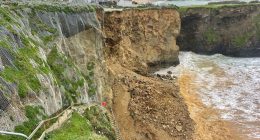Today, Reddy has changed his tune a bit. He says that the initial shot of BP research money made a difference for him and other scientists who were trying to understand what happened. He says marine scientists and oil industry engineers had to learn to get along to figure out how to stop the oil, and how to measure where it was headed. “We live in this ivory tower,” Reddy adds, “and suddenly we crashed a party with a wide range of guests. We didn’t know the language, the customs, and the dress code. It was difficult and challenging, and there were some clashes. Ten years later, there’s a much better working relationship with the oil spill science community.”
The BP money that set up GoMRI also led to the deployment by microbiologists from several labs of new genetic tests on naturally occurring bacteria and plankton around the oil spill and on Gulf coast beaches and marshes. These tests were able to prove whether an area had been hit by the oil spill, even if much of the oil itself had evaporated, or become buried in bottom sediments.
“One of the issues we were dealing with is how to track the oil,” says Samantha Joye, a marine scientist at the University of Georgia. Joye says these genetic tests used by her lab and others allowed researchers to track microbial populations. They found new species of bacteria that consume oil at various water depths and conditions, and discovered that chemical dispersants that federal officials used to fight the spill were killing these natural oil-eating bacteria.
Joye adds the Deepwater Horizon spill was the first time that microbiologists had the tools, methods, and funding to use this technique to accurately measure ecological damage. While oily seabirds and dying dolphins usually grab the media spotlight during a spill, she notes that changes at the bottom of the food chain are perhaps more important to document. “You can put an assessment on how many square miles of beach were damaged, but how do you come up with a price tag on plankton?” Joye asks. “They are the biological engine of the system. Without those organisms, the entire ecosystem collapses.”
Joye led a committee of microbiologists studying the Deepwater Horizon spill, which published an overview of these findings in March.
Nearly all of the research studies from the initial $500 million of GoMRI funds have been completed; one of the largest examined the effects of oil on 91 fish species in the Gulf of Mexico. From 2011 to 2018, researchers from the University of South Florida and several other institutions sampled more than 2,500 individual fish and found evidence of oil exposure in all of them, as they reported last week in the journal Nature Scientific Reports.
“We actually haven’t found one oil-free fish yet,” says Steven Murawski, the USF professor of marine science who led the $37 million research effort. Yellowfin tuna, golden tilefish, and red drum had the highest concentrations of polycyclic aromatic hydrocarbons (known as PAHs, which are the most toxic part of crude oil), while commercially important grouper and red snapper had slightly lower levels.
Murawski says that while the fish aren’t dying of direct exposure from PAHs, the toxins are accumulating in their livers—making them less healthy and as a result, more susceptible to disease or parasites. He believes that there is a tipping point of continuous exposure to oil, past which some species will be wiped out. Biologists like Murawski say they hope they can find this point before it’s too late.
Erin Pulster, a scientific researcher at USF, was an author on the new study. She says she was surprised that oil was still accumulating so many fish species. “I blindly assumed the pollution levels would decrease,” Pulster points out. “The fact they are increasing over time surprised me.”








